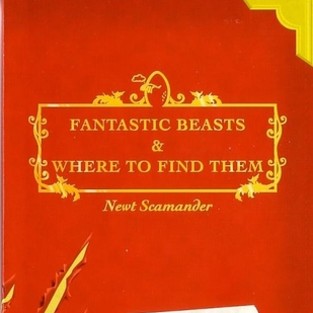ADD-ON: Revered author J.K. Rowling of the Harry Potter series writes her first screenplay.
By Cole Nelson, Diversions Editor
J.K. Rowling’s novel Harry Potter and the Deathly Hallows ends with a curious look into the famous wizard Harry Potter’s life nineteen years after he restores peace to the wizarding world; he is married to the fierce, redheaded Ginny Weasley with two young sons attending the Hogwarts School of Witchcraft and Wizardry. Whether or not Rowling wrote this ending with the intention of raising much speculation about an ongoing series (perhaps focused on a Potter Jr.), witch and wizard fans alike have bickered for years about the likelihood of another magic-based novel.
To their surprise, this is not the case. But, as usual, Rowling does not disappoint. On September 12, Warner Brothers studio producer David Heyman released the news of a film series continuation of the very same Harry Potter-based wizarding world.
The first installment of this series has been titled Fantastic Beasts and Where to Find Them, originating from a textbook used by the witches and wizards of Hogwarts. Both Rowling and Heyman have made it known that Fantastic Beasts, “is neither a prequel nor a sequel to the Harry Potter series, but an extension of the wizarding world,” (as seen on www.JKRowling.com). The fictional author of the textbook, Newt Scamander, doubles as the main character of the film. Rowling writes that, “I thought it was a fun idea, but the idea of seeing Newt Scamander […] was difficult.”
Although Fantastic Beasts isn’t based off of an extensive novel, it will be written by our very own Joanne (J.K.) Rowling, marking her debut for screenwriting of any kind. Fans can rest assured that the much anticipated wizarding-world-expansion films will continue to contain an element of Rowling in them, as the Harry Potter films did. Although the Harry Potter series was not adapted to the screen by Rowling, David Heyman was sure to incorporate Rowling into the creative process.
One can assume, however, based on inductive inferences, that Rowling’s screenplay may not be substantial enough for its craving fans. Rightly so; it is not often that an author-turned-screenwriter has much success, regardless of the cult following. It must be noted that, after much fame and success with This Side of Paradise, F. Scott Fitzgerald eventually moved to Hollywood to pursue a degrading and damaging life as a screenwriter, where he wrote several original, forgettable screenplays.
Inductive reasoning, luckily, can also be applied in favor of Rowling. In the past, writers seem to have more success in the film industry when they adapt their own work into a screenplay. Author Stephen Chbosky received much commercial success with his screenplay adaptation of his coming-of-age novel The Perks of Being a Wallflower. Both the novel and the film gained a large cult following, similar to the success of the Harry Potter series in both book and movie form.
Much pressure has been set on Rowling to deliver a sensational screenplay that will stand the test of time, as her Harry Potter books have thus far. Supposing that the philosophy of induction is correct, Rowling’s luck can go either way. She can either fall into the drunken depths of F. Scott Fitzgerald or follow the path to glory as Stephen Chbosky has. Regardless of the outcome, Rowling has produced an onslaught of magical giddy in her faithful fans.
Photo courtesy of www.moviefanatic.com

